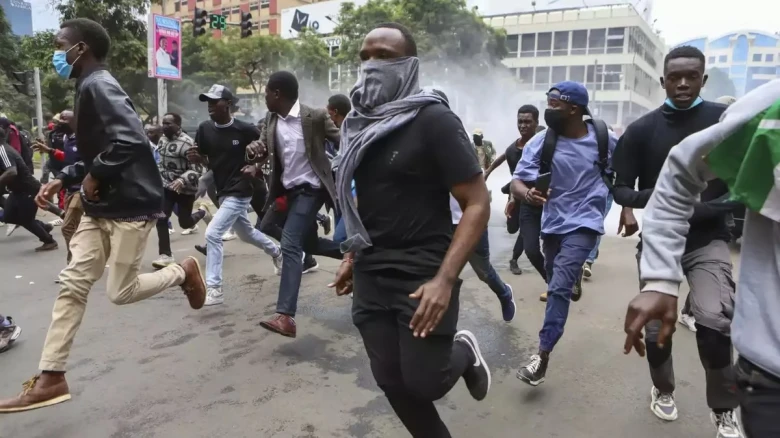As the country navigates these challenges, the spotlight remains on the government's response to public grievances...
Digital Desk: At least 39 people have tragically lost their lives and over 300 others have been injured in recent anti-government demonstrations in Kenya, according to the Kenya National Commission on Human Rights (KNCHR). These protests erupted following contentious tax hikes that were subsequently rescinded, sparking widespread unrest across the country.
The toll disclosed by KNCHR starkly contrasts with earlier figures provided by the authorities, highlighting the severe impact of the protests. The commission reported that from June 18 to July 1, 39 deaths and 361 injuries were recorded about the demonstrations. Additionally, there were alarming reports of 32 cases of enforced disappearances and 627 arrests of protesters, underscoring the intensity and scale of the unrest.
What began as peaceful rallies against tax increases quickly escalated into violence last week, particularly after lawmakers passed the controversial legislation. The scenes of chaos included the ransacking and partial burning of the parliament complex in Nairobi amidst clashes with law enforcement who allegedly used excessive force.
In response to the violence, KNCHR strongly condemned the use of force against protesters, medical personnel, journalists, and even safe spaces like churches and ambulances. It emphasized that such actions were disproportionate and unwarranted, advocating for respect for human rights and due process.
While President William Ruto has rolled back some of the tax measures in response to public outcry, activists have called for continued demonstrations this week, indicating ongoing dissatisfaction and a demand for broader reforms. The government's rationale for the tax hikes centered on the need to manage Kenya's substantial public debt, which stands at approximately 70% of GDP, prompting pressure from international financial bodies like the International Monetary Fund (IMF) for fiscal reforms.
The unfolding events in Kenya underscore the complex interplay between governance, economic policy, and civic engagement. As the country navigates these challenges, the spotlight remains on the government's response to public grievances and the protection of fundamental rights amidst a volatile political landscape.

Leave A Comment